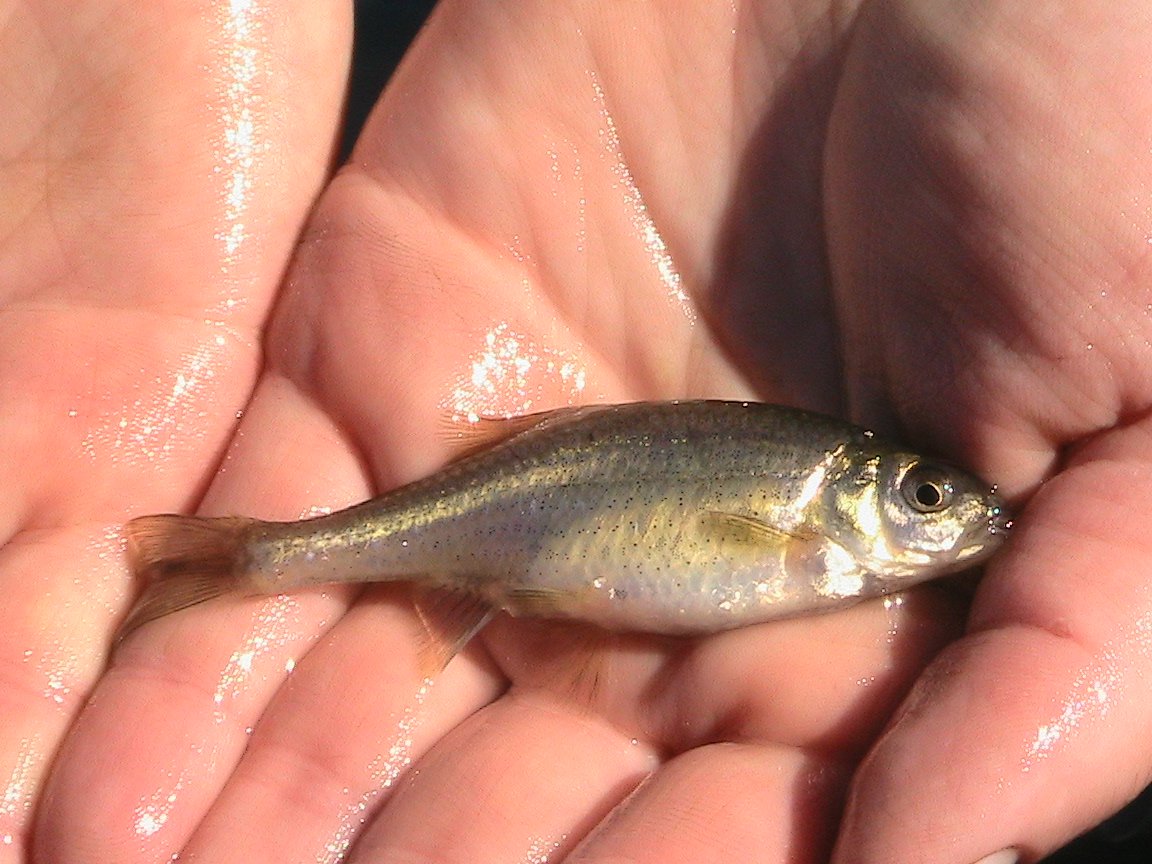Council's fish and wildlife program benefits Oregon chub, proposed for delisting
- February 14, 2014
- John Harrison

The Council’s Columbia River Basin Fish and Wildlife Program has a small but important role in a proposal to remove Oregon chub from the federal endangered species list, the first fish that would be delisted because it is considered recovered. The U.S. Fish and Wildlife Service proposed to delist the species on February 4.
The finger-sized minnow was listed as endangered in 1993 and reclassified as threatened in 2010, and since then the upward trend in its numbers has continued. According to the Service, just eight populations with fewer than 1,000 fish were known to exist at the time of the listing. Today, the population is believed to be more than 150,000 fish in 80 locations.
Oregon chub are found only in Willamette River floodplain habitats where there is little or no flow. The health of chub populations is considered an indicator of water quality and the health of ecosystems, according to the Oregon Department of Fish and Wildlife.
Predation by non-native fish and loss of habitat were the primary reasons for the decline of the species, but over time collaborative partnerships among fish and wildlife agencies, private landowners, and others led to habitat protections and acquisitions that helped reduce the threats.
That’s where the Council’s program played a role in this success story. Through the program, habitat is acquired and protected from development as partial mitigation for the impacts of hydropower dams on fish and wildlife, in this case dams on Willamette tributaries. In the Willamette Basin, this is accomplished through the 2010 Willamette Wildlife Memorandum of Agreement between the state of Oregon and the Bonneville Power Administration, which provides funding. Chub populations were discovered on habitat acquired -- or designated for acquisition -- through the program on these parcels:
- Minto Island Conservation Area, 300 acres along the Willamette mainstem, owned by the City of Salem
- Chahalpam, 338 acres along the North Santiam River, and Chahalpam Phase II, 91 acres, both along the North Santiam River, owned by the Confederated Tribes of the Grand Ronde Reservation
- Hayden Island, 270 acres along the mainstem Willamette, owned by the Oregon Parks and Recreation District
- Turtle Flats, 63 acres along the Middle Fork Willamette River, owned by the Friends of Buford Park
- Luckimute Meadows, 80 acres along the Luckimute River; Harkens Lake, 654 acres along the mainstem Willamette; and Horseshoe Lake, 283 acres also along the mainstem Willamette, all owned by the Greenbelt Land Trust
Having received the petition for delisting, the Service now has a year to determine whether the proposal should become final. More information about Oregon chub and the petition is posted on the Fish and Wildlife Service website.



